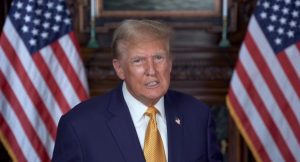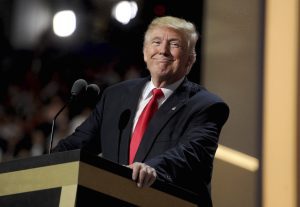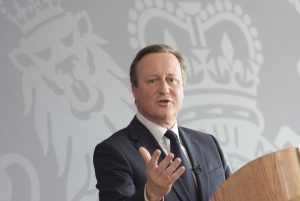By WYATTE GRANTHAM-PHILIPS (AP Business Writer)
NEW YORK (AP) — Legislation that requires TikTok’s parent company to sell the video-sharing platform or face a ban in the U.S. received President Joe Biden’s official approval Wednesday. But the new law may face a challenging battle in court.
Critics of the sell-or-be-banned ultimatum argue that it violates the First Amendment rights of TikTok users. The app’s China-based owner, ByteDance, has already pledged to sue, calling the measure against the constitution.
However, the success of a legal challenge is not guaranteed. Opponents of the law, including advocacy organizations like the American Civil Liberties Union, argue that the government has not justified banning TikTok, while others say national-security claims could still win.
For years, lawmakers from both parties have expressed concerns that Chinese authorities could compel ByteDance to hand over U.S. user data, or influence Americans by controlling content on TikTok. The U.S. has yet to provide public evidence to support those claims, but some legal experts note that political pressures have piled up regardless.
If the law is upheld, legal experts also emphasize that it could set a precedent with broader implications for digital media in the U.S.
Here’s what you need to know.
IS A TIKTOK BAN UNCONSTITUTIONAL?
That’s the main question. TikTok and opponents of the law have argued that a ban would violate the First Amendment rights of the social media platform’s 170 million U.S. users.
Patrick Toomey, deputy director of the ACLU’s National Security Project, said a TikTok ban would “stifle free expression and limit public access” to a platform that has become a central source for information sharing.
One of the main questions will be whether the legislation interferes with the overall content of speech on TikTok, notes Elettra Bietti, an assistant professor of law and computer science at Northeastern University, because content-based restrictions face a higher level of scrutiny.
ByteDance had not yet officially filed a lawsuit by late Wednesday, but Bietti said she expects the company’s challenge to primarily focus on whether a ban infringes on these broader free-speech rights. She added that additional legal action involving TikTok’s “commercial actors,” such as businesses and influencers who depend on the platform, may also arise.
COULD TIKTOK SUCCESSFULLY PREVENT THE BAN IN COURT?
TikTok is expressing confidence about the prospects of its planned challenge.
“Rest assured, we aren’t going anywhere,” TikTok CEO Shou Chew said in a video response posted to X Wednesday. “The facts and the Constitution are on our side, and we expect to prevail again.”
Toomey also said that he is optimistic about the possibility of TikTok being able to block the measure in court, noting that both users and the company “have extremely strong” First Amendment claims.
“Many of the calls to completely ban TikTok in the U.S. are about scoring political points and rooted in anti-China sentiment,” Toomey added. “And to date, these steps to ban TikTok had not been remotely supported by concrete public evidence.”
However, it's tough to predict the future outcome of any lawsuit, especially for this type of case. Legal experts say it can be hard to use political motivations as a reason to invalidate a law, even if they're well-documented.
The legal battle could drag on for a while, with potential appeals that could reach the Supreme Court. According to Gus Hurwitz, a senior fellow at the University of Pennsylvania's Carey Law School, the Supreme Court would probably support the law due to its current makeup.
HOW MIGHT THE GOVERNMENT RESPOND TO THE CHALLENGE?
TikTok's legal challenge won't be without resistance. The government will likely counter with national-security claims, which were prominently mentioned as the legislation went through Congress.
Toomey argues that the government hasn't met the high threshold needed to prove immediate national-security risks, but other legal experts point out that it's still a strong argument to make.
Gus Hurwitz said that national security tends to hold a lot of power in legislation. Once national-security issues are raised, they will be the deciding factor, whether successful or not.
Hurwitz added that he believes there are valid national-security arguments that could be brought up here, especially since it's a federal measure. This makes the scenario different from previous unsuccessful state-level attempts to ban TikTok. such as in Montana.
However, national-security arguments can be questioned about why TikTok is being specifically targeted.
“Personally, I believe that what TikTok does isn't that different from other U.S.-based companies,” Bietti said, referring to tech giants like Google and Amazon. The question is, 'Why ban TikTok and not the activities and surveillance carried out by other companies in the United States?'
IF THE LAW IS UPHELD, COULD THERE BE WIDER RAMIFICATIONS?
Nevertheless, legal experts suggest that there could be consequences beyond TikTok in the future.
The measure was approved as part of a larger $95 billion package that provides aid to Ukraine and Israel. It also includes a provision that makes it illegal for data brokers to sell or rent 'personally identifiable sensitive data' to North Korea, China, Russia, Iran or entities in those countries.
This has faced some opposition, including from the ACLU, which says the language is too broad and could encompass journalists and others who publish personal information.
“There’s real reason to be concerned that the use of this law will not stop with TikTok,” Toomey said. “Looking at that point and the bigger picture, banning TikTok or forcing its sale would be a devastating blow to the U.S. government’s decades of work promoting an open and secure global internet.”



